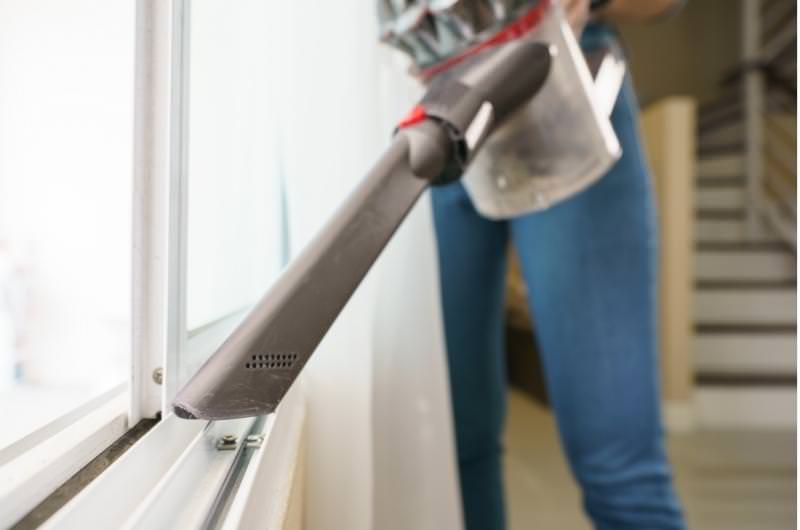Laughing too hard will cause droplets of your saliva to enter your windpipe. Your body may confuse these droplets as a potential threat or infection causing a cough reflex. Generally, your body produces phlegm that fights any foreign substance that may enter your respiratory system, and coughing is a way to eliminate it. In some other cases, this after-effect could also be symptoms of asthma or post-nasal drips.
Who doesn’t love a good sense of humor that makes you rub your belly from laughing? Trust me, everybody wants that! We all deserve a good laugh now and then.
Laughing is a good exercise for your cardiovascular, pulmonary, and respiratory systems. Additionally, it may also improve lung function if you have chronic lung illnesses.
Coughing up phlegm as an after-effect of laughing could be bothersome and embarrassing. But that doesn’t mean you’ll avoid laughing from now on! Knowing what could be the problem may help you lessen your symptoms.
Post-nasal drip
Typically, you produce mucus that protects and prevent your respiratory system from harmful bacterial or viral infection.
Many factors could trigger your body to produce more mucus which becomes annoying, especially when you can feel the build-up at the back of your mouth.
The most common symptom of post-nasal drip is the feeling of a liquid (mucus) dripping down your throat. Laughing hard might irritate your throat, causing you to have a nagging cough. It may also feel like you have a sore and a lump in your throat.
Post-nasal drips are often due to allergies, GERD, and bacterial or viral infections.
If you’re unsure of what could be the contributing factor, you could do home remedies such as:
1. Elevate your head
When lying down, put two pillows underneath your head to keep it slightly elevated.
2. Hot drinks
Keeping yourself hydrated with a lot of fluids will help drain and thin down your mucus. Hot drinks like tea or broth are also very effective.
3. Nasal rinse and gargle salt water
Gargling salt water (1/2 teaspoon of salt into 8 ounces of warm water) will help relieve sore throat. Using Neti pots or nasal irrigation will flush excess mucus, bacteria, and other irritants from your nose.
4. Steam Inhalation
It will help moisten the linings of the tissue in your nose and throat for the mucus to pass through easily.
A steamy shower will also do the trick.
5. Avoid alcohol and cigarette smoke
Alcoholic drinks can cause dehydration, while cigarette smoke can increase mucus production and is generally harmful to the lungs.
6. Use an air humidifier
It will increase moisture in the air and will help with your symptoms.
You may also go extra by adding special air filters in your room.
7. Wash your bed cover, pillowcases, and sheet regularly
To eliminate allergens, viruses, and bacteria, soak them with hot water.
8. Clean your house regularly

Dust, vacuum, and disinfect your home regularly to eliminate pathogens.
These home remedies could be effective for mild conditions. Consult your doctor to rule out the causes of your post-nasal drips. You might need prescriptions like antibiotics if you have a bacterial sinus infection.
You could also use over-the-counter drugs like:
- Decongestants
- Antihistamines
- Expectorants
Laughter-induced asthma
Experts say that laughter can trigger asthma symptoms. Anxiety, anger, excitement, joy, and sadness could also be contributing factors.
Laughing doesn’t cause the illness itself- that would sound horrible if it does- if you have asthma then, you should expect asthma flare-ups after having a good laugh.
Laughter-induced asthma has symptoms like:
- Coughing (with or without phlegm)
- Wheezing
- Difficulty catching breaths
- Chest tightness and pain
While there’s no explanation why laughter could trigger asthma symptoms, it could be due to hyperventilation.
When you’re laughing or experiencing other strong emotions, you’re breathing out more air at a faster speed. It will restrict airflow in your lungs and irritate your airways, resulting in an asthma attack.
Experts also found that people with well-controlled asthma may be less likely to get the attacks after laughing. Thus, it is important to give your illness with utmost care and attention.
Consult your doctor to give you advice on what best methods to follow. However, here are some steps that may help you;
List down your triggers
Keeping a list of your asthma triggers will remind you to keep away from them as much as possible. Such common triggers include the following:
- Cigarette smoke
- Allergens (dust mites, pollens, pet danders)
- Insects and pests (honeybees, wasps, cockroaches, mice, etc.)
- Bacteria, viruses, and molds
- Cold, dry air
- Strong odor or fumes
- Stress
- Exercise
Although exercise could trigger your asthma attacks, it still is beneficial to you. Exercising regularly may reduce your risk of having breathing problems. Taking longer break time in every session can be helpful.
Clean your home regularly
Disinfect your floors, tiles, windows, tables, and chairs to eliminate dust mites. Wash your beddings, sheets, and pillowcases in hot water. Do general cleaning at least 2-3 times a month to ensure a pest-free environment.
Practice proper hygiene
Always wash your hands after touching things especially, in public places. During flu and cold season, wear a mask when going out.
Stay up-to-date in vaccinations
Make sure you get shots to avoid the flu virus to avoid worsening your asthma attacks. If you have allergies, you may also get allergy shots (immunotherapy) to keep control of your reactions to allergens.
Take your medications and follow doctors advice
Of course, you should be smart enough not skipping your medicines to reduce inflammation in your airways and avoid asthma attacks.
There are quick relief, and long-term medications include:
- Anti-inflammatories
- anticholinergics
- Long-acting bronchodilators
Other medications for severe asthma include biologics and bronchial thermoplasty.
Always keep an inhaler with you
It could get annoying always grabbing an inhaler when you’re in the middle of something. However, with proper use, it would bring you relief from having flare-ups.
Record your breathing
There are peak flow meters for at-home use which, will let you know if your lungs are functioning well. The results will help you have an idea if you’re well-controlling you’re asthma or not.
The Takeaway
Whether your condition is due to a natural mechanism of your body or laughter-induced asthma, you shouldn’t stop laughing.
Laughing is the best medicine that increases your quality of life. Even doctors recommend patients with asthma continue having these fun activities (while keeping the illness controlled) to keep any other complications in the respiratory system at bay.
Always take your prescribed medicines even if you’re not having signs of attacks. Over-the-counter drugs aren’t recommended to treat asthma symptoms. Let your doctor monitor your illness and give you a treatment plan.
If other unusual symptoms occur in addition to a nagging cough after a laugh, consult your doctor immediately.


